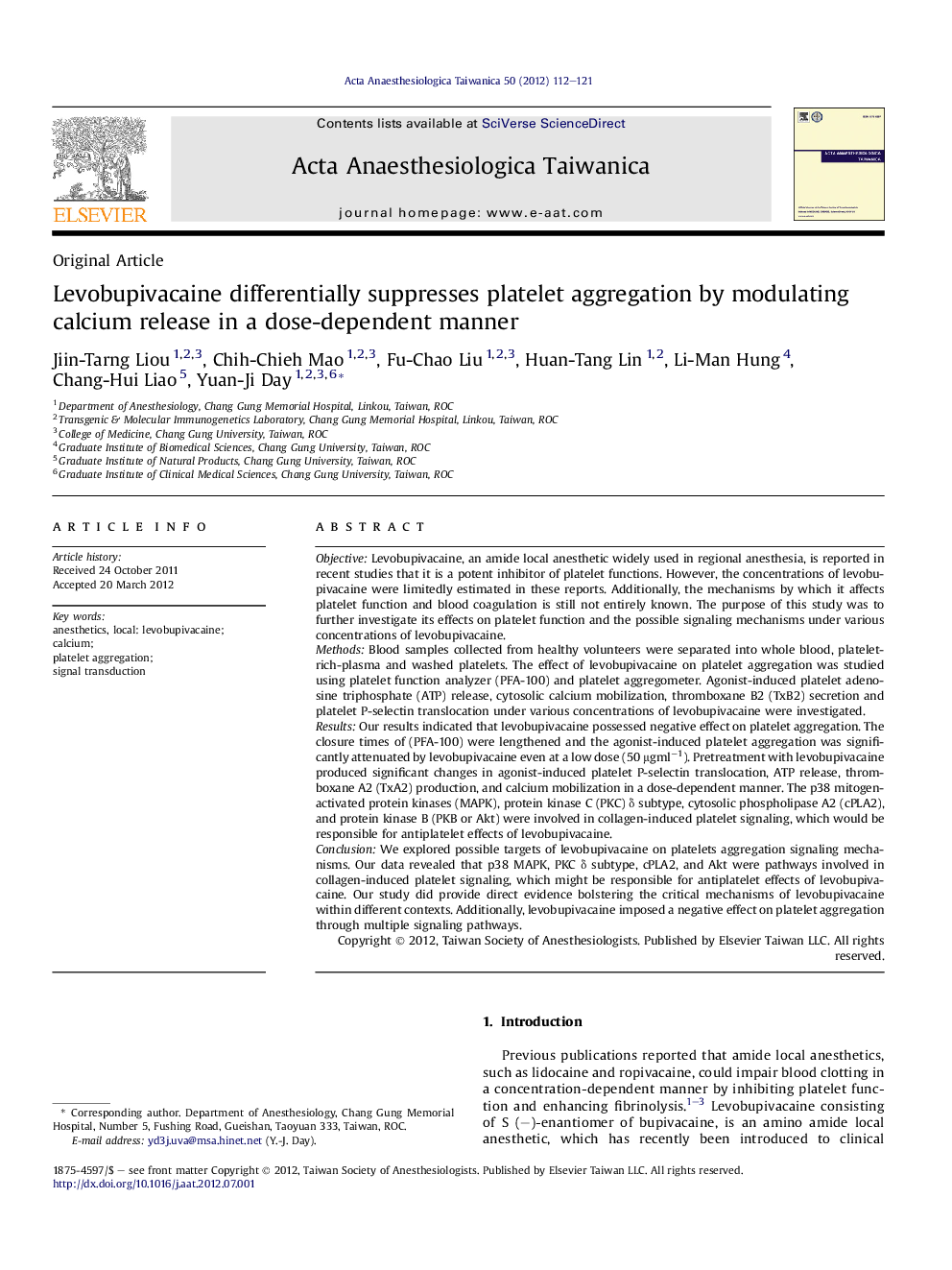| کد مقاله | کد نشریه | سال انتشار | مقاله انگلیسی | نسخه تمام متن |
|---|---|---|---|---|
| 2741501 | 1148535 | 2012 | 10 صفحه PDF | دانلود رایگان |

ObjectiveLevobupivacaine, an amide local anesthetic widely used in regional anesthesia, is reported in recent studies that it is a potent inhibitor of platelet functions. However, the concentrations of levobupivacaine were limitedly estimated in these reports. Additionally, the mechanisms by which it affects platelet function and blood coagulation is still not entirely known. The purpose of this study was to further investigate its effects on platelet function and the possible signaling mechanisms under various concentrations of levobupivacaine.MethodsBlood samples collected from healthy volunteers were separated into whole blood, platelet-rich-plasma and washed platelets. The effect of levobupivacaine on platelet aggregation was studied using platelet function analyzer (PFA-100) and platelet aggregometer. Agonist-induced platelet adenosine triphosphate (ATP) release, cytosolic calcium mobilization, thromboxane B2 (TxB2) secretion and platelet P-selectin translocation under various concentrations of levobupivacaine were investigated.ResultsOur results indicated that levobupivacaine possessed negative effect on platelet aggregation. The closure times of (PFA-100) were lengthened and the agonist-induced platelet aggregation was significantly attenuated by levobupivacaine even at a low dose (50 μgml−1). Pretreatment with levobupivacaine produced significant changes in agonist-induced platelet P-selectin translocation, ATP release, thromboxane A2 (TxA2) production, and calcium mobilization in a dose-dependent manner. The p38 mitogen-activated protein kinases (MAPK), protein kinase C (PKC) δ subtype, cytosolic phospholipase A2 (cPLA2), and protein kinase B (PKB or Akt) were involved in collagen-induced platelet signaling, which would be responsible for antiplatelet effects of levobupivacaine.ConclusionWe explored possible targets of levobupivacaine on platelets aggregation signaling mechanisms. Our data revealed that p38 MAPK, PKC δ subtype, cPLA2, and Akt were pathways involved in collagen-induced platelet signaling, which might be responsible for antiplatelet effects of levobupivacaine. Our study did provide direct evidence bolstering the critical mechanisms of levobupivacaine within different contexts. Additionally, levobupivacaine imposed a negative effect on platelet aggregation through multiple signaling pathways.
Journal: Acta Anaesthesiologica Taiwanica - Volume 50, Issue 3, September 2012, Pages 112–121